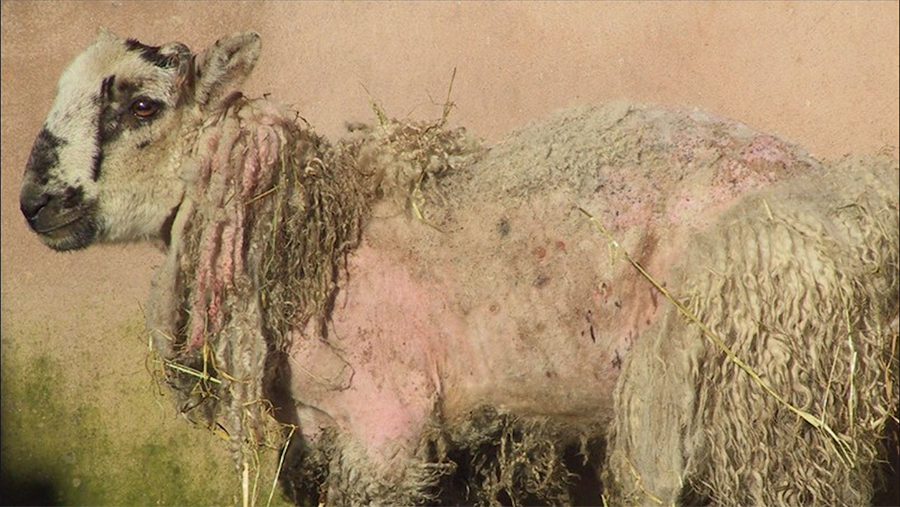Test breakthrough paves way for sheep scab vaccine
 © Nadis
© Nadis A highly sensitive sheep scab test will enable farmers to differentiate between vaccinated and infested animals.
The breakthrough is the result of Scottish research done by the Moredun Research Institute near Edinburgh and the James Hutton Institute, Dundee, which found a protein named Pso EIP-1.
Moredun is currently developing a sheep scab vaccine and the new test will be phased in to support the vaccine, according to researchers.
The improved test – using the Pso EIP-1 protein – will really come into its own once farmers are vaccinating sheep for scab on farms.
See also: Video: How farmers are uniting to eradicate sheep scab
Moredun believes the vaccine could be available in five years, depending on funding.
The test claims to:
- Differentiate between vaccinated and infested animals
- Provide rapid and accurate diagnosis of the disease
- Detect asymptomatic cases (responsible for spreading the parasite)
What test option do farmers currently have?
- Biobest laboratories run a commercially available sheep scab test
- The sheep scab test is a “whole-flock” test and to determine flock scab status it is important to test a minimum of 12 sheep (from any size of flock or individual management group of sheep with no contact or mixing with other sheep)
- The test is priced to encourage its use at the flock level, costing £6 an animal (£72 total) for a 12-animal screen, £8.50 an animal for two to 11 samples and £9.50 an animal for a single test
How the test works
Sheep scab, or psoroptic mange, is caused by an infestation with the parasitic mite Psoroptes ovis, resulting in a severe skin irritation in livestock.
The disease is highly contagious and has profound financial and welfare implications in areas where it is endemic worldwide.
Rapid and accurate diagnosis is essential to help control this parasitic disease.
Conventional diagnosis involves time-consuming and expensive analysis of the skin or wool of the sheep under a microscope, which lacks specificity and sensitivity.
It also often fails to detect asymptomatic cases, which are responsible for spreading the parasite.
To overcome this issue, the team looked at methods of detecting the mite before symptoms occur.
They discovered that early infestation by the mite triggers an immune response in the sheep, which leads to the production of antibodies associated with particular proteins that are excreted by the mite.
What is sheep scab?
- Sheep scab is caused by the parasitic mite Psoroptes ovis
- There are only two prevention methods for sheep scab – plunge dipping with diazinon or using macrocyclic lactones
- Actives to control scab include organophosphate plunge dipping, moxidectin 1% and 2%, doramectin and ivermectin
Source: National Animal Disease Information Service
One particular protein, termed Pso O-2, was found to specifically induce antibodies in sheep blood in the early stages of an infestation and before the appearance of symptoms.
It was shown that Pso O-2 is also an excellent vaccine candidate, as it triggers antibody production in the sheep, offering a degree of protection against mite infestation.
“Although Pso O-2 is also a promising candidate for the prototype sheep scab vaccine being developed at Moredun, it cannot be used both diagnostically and in a vaccine, as vaccinated sheep would give a positive test even if they weren’t infested.” said Stewart Burgess, principal investigator at Moredun.
However, the recent research has identified, characterised and produced an alternative protein, Pso EIP-1, which can detect asymptomatic infestations with very high levels of accuracy.
It also distinguishes between infested animals and those that have previously been vaccinated with Pso O-2.
“Pso EIP-1 overcomes this problem by allowing us to differentiate between infested and vaccinated animals, without compromising the sensitivity and specificity of the diagnostic test,” said Dr Burgess.
“It will provide us with a new diagnostic antigen that can be used once the sheep scab vaccine is commercially available.”
